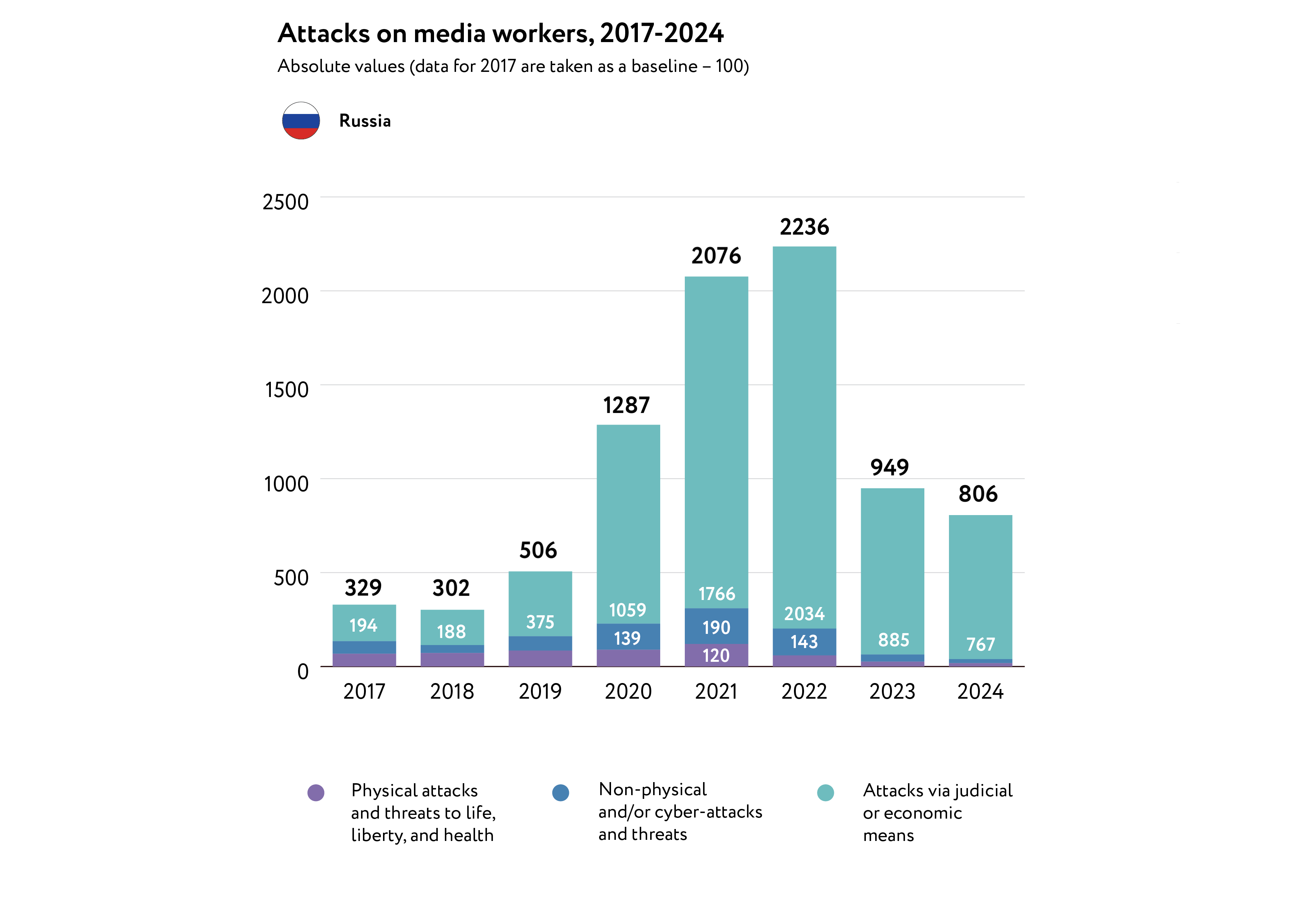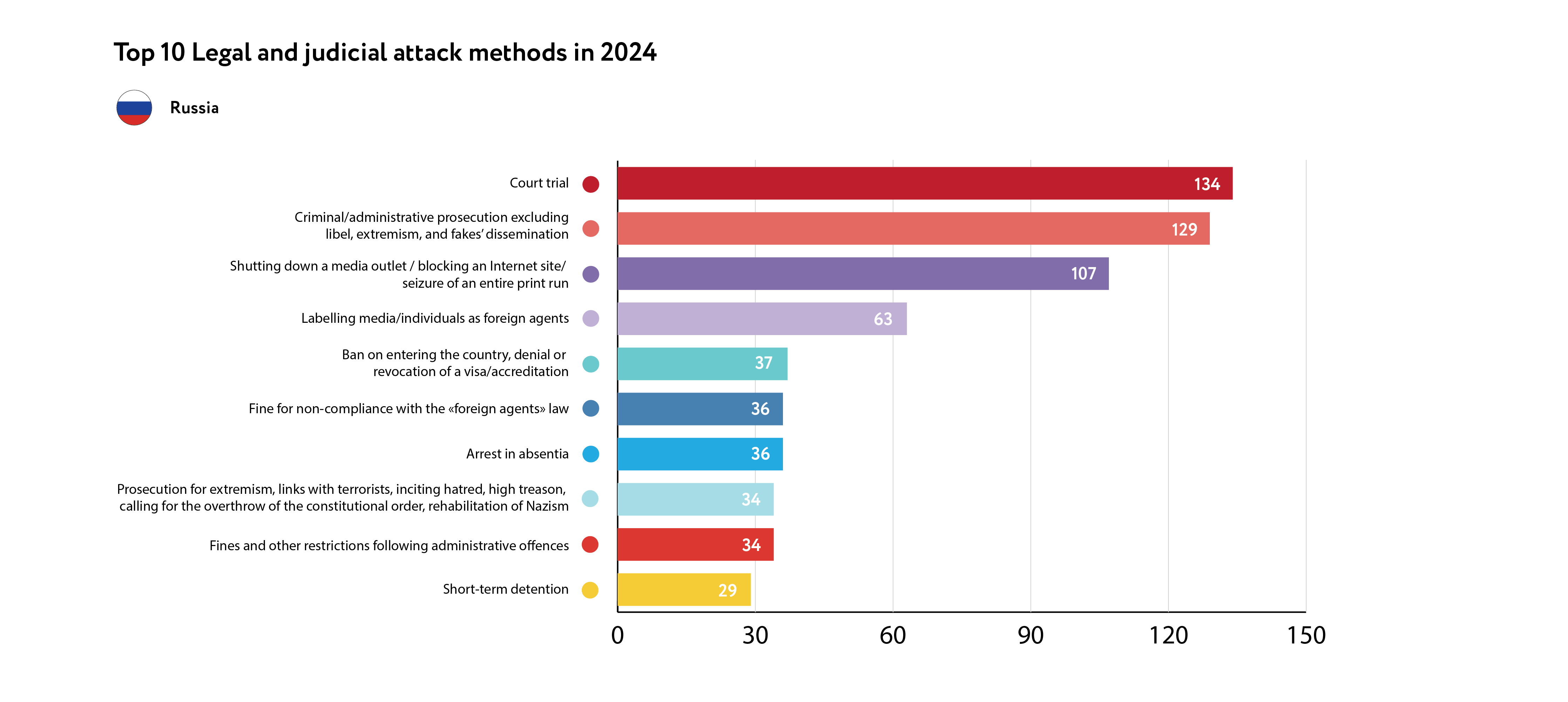Discover a free extract
In 2024, 806 attacks on journalists, bloggers and media were recorded in Russia. Compared to 2022, when there was a rapid purge of the media space and the intensity of attacks on media reached a record high (2,236 incidents), a significant decrease was recorded in 2023, down to 949 incidents. The trend continued in 2024.

The reduction in the number of recorded attacks does not indicate an improvement in the working conditions of journalists. This is the effect of the so-called “Turkmenization”, already observed in Belarus in particular, which is expressed in a sharp decrease in the number of media workers not integrated into the state propaganda system.
The vast majority of registered attacks (767) involved the use of legal and/or economic mechanisms: criminal cases, administrative protocols, lawsuits, searches, fines, and inclusion in the lists of “foreign agents” and “undesirable organisations”.

Most cases against journalists in 2024 were brought under the following articles: failure to perform the duties of a “foreign agent” (Article 330.1 of the Criminal Code of the Russian Federation); dissemination of “fakes” about the Russian army (Article 207.3 of the Criminal Code of the Russian Federation); participation in an extremist community (Article 282.1 of the Criminal Code of the Russian Federation); and justification of terrorism (Article 205.2 of the Criminal Code of the Russian Federation).
Dear Reader!
We hope you enjoyed the free extract, however, if you would like to access the whole report, we would ask you to SUPPORT US by donating £10. JFJ has made a difficult decision to move some of its content behind the paywall. There are two reasons for it.
- As a Charity, we depend on donations to continue producing the best research and insight we can.
- As an organisation labelled 'undesirable' in the Russian Federation, our Russia-connected readers might be persecuted for 'participation in the activities of an undesirable organisation' if they own or quote JFJ's publications.
We wish you a safe and enjoyable reading and thank you for your support.
If you have already the account and paid or want to pay for this Report please use login form below to have access to the text.
